Dear Artist,
Psychologist Mihály Csíkszentmihályi found that certain types of people are better than others at achieving and staying in flow. Flow is that feeling of immersion that can happen when we’re engrossed in an activity. According to research, the phenomenon is experienced most often and consistently by artists, musicians and athletes. Amongst them, those most likely to find flow are naturally curious, persistent, low on egotism, and have a high propensity to engage in activities for their own intrinsic pleasure. “Autotelic,” deriving from two Greek words; auto, meaning self, and telos meaning goal, means when something is its own reward, the motivation and challenge of getting good at it turns into a path to almost complete emotional self-sufficiency.
Csíkszentmihályi interviewed artists and musicians in order to understand what flow felt like. Their reports — 7000 of them — were staggeringly similar: each described a feeling of total immersion and intrinsic enjoyment, a loss of a sense of time and other needs, and an almost out-of-body experience, where the activity was automatic, without much conscious effort. Think of a clarinetist observing her own fingers, letting the instrument play itself.
The most important thing about flow is that it only happens when a person is nestled in a psychological state between challenge and control; immersed in an activity with which she already possess a fair amount of skill and evolved technique. One cannot lose herself in a concerto, after all, until she has long-practiced her scales. Csíkszentmihályi went as far as to say a minimum of 10 years of skill-building was required to even get close. “It takes that long,” he said, “to be able to begin to change something in a way that is better than what was there before.” In this sense, flow is simply a heightened echelon of creativity, and only happens when one knows what to do and how to do it, and knows how well they are doing, where they are going and feels adequately challenged. In other words, if you don’t know what you’re doing in the first place, and if the challenge is too great or insufficient, flow is unreachable. Here’s an idea:
In the spirit of autotelic joy, let go of the goal of flow, and simply work on getting yourself into its arena.
Cultivate your own intrinsic motivation by finding out what you’re curious about and exploring it for its own sake.
Put in the hours — the years — and take the technical and emotional risks to work towards a state of mastery.
Practice removing distractions and immersing yourself in an environment where you can focus. Then get lost.
Notice when you’re bored or apathetic, too relaxed, or too anxious or aroused.
Notice in which activities you feel a simultaneous sense of excitement, challenge and control. Take note of when you feel a loss of self-consciousness — your body and identity disappearing from awareness, while at the same time feeling the possibility of success — a sense of optimism — in what you’re working on. This moment is the portal to peak experience. Repeated, it can be a leaping off point for creative innovation, satisfaction and growth. It’s also a reliable route to happiness. “Perform with elan, brilliance and dash,” wrote Csikszentmihalyi, “at concert pitch.”
Sincerely,
Sara
PS: “An autotelic person needs few material possessions and little entertainment, comfort, power, or fame because so much of what he or she does is already rewarding. Because such persons experience flow in work, in family life, when interacting with people, when eating, even when alone with nothing to do, they depend less on external rewards that keep others motivated to go on with a life of routines. They are more autonomous and independent because they cannot be as easily manipulated with threats or rewards from the outside. At the same time, they are more involved with everything around them because they are fully immersed in the current of life.” (Mihály Csíkszentmihályi)
Esoterica: Mihály Csíkszentmihályi was born in 1934 in Fiume, then part of the Kingdom of Italy, now known as Rijeka, Croatia. His father was a Hungarian diplomat. After the Second World War and the ascendance of the Communist regime in Hungary in 1949, his family relocated to Rome and opened a restaurant. At 22, Csíkszentmihályi moved to Chicago to study happiness and creativity. He’d seen a lecture by Carl Jung in Zurich, where Jung discussed the imaginative devices people used to recover from the devastation of the Second World War. In 1975, Csíkszentmihályi coined the term Flow and emerged as the father of positive psychology. He led research at the University of Chicago, Lakeforest College and Claremont Graduate University. Mihály Csíkszentmihályi passed away at home in Claremont, California on October 20, 2021. He was 87.
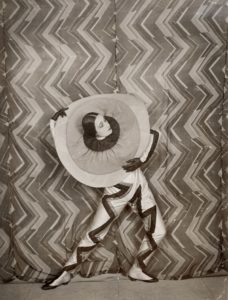 Mihály Csíkszentmihályi’s 1990 book, Flow: The Psychology of Optimal Experience, is available, here.
Mihály Csíkszentmihályi’s 1990 book, Flow: The Psychology of Optimal Experience, is available, here.
Have you considered a Premium Artist Listing? With each letter, an artist is featured at the bottom of this page. The Premium Artist Listings are a means of connecting artist subscribers through their work. Proceeds from each listing contribute to the production of The Painter’s Keys.
“Repression is not the way to virtue. When people restrain themselves out of fear, their lives are by necessity diminished. Only through freely chosen discipline can life be enjoyed and still kept within the bounds of reason.” (Mihály Csíkszentmihályi)
Featured Workshop
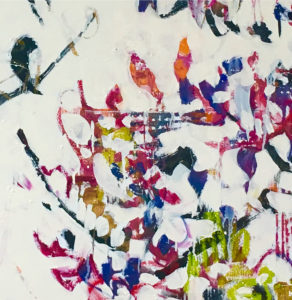 Join Ellie Harold for “Intuitive Painting: Permission to Paint Expressively,” designed especially for mature women artists of all skill levels who wish to explore this medium for soulful exploration. The retreat provides attractive accommodations (your own room!) along with lightly structured activities for centering, relaxation and low stress art-making. You’ll have plenty of free time to muse, paint, write and reflect while enjoying the colors, textures and flavors of San Miguel. This Retreat has the potential to transform not only your art but your life! You’ll return home with a specific art “care plan” to assure support for further creating. Details at www.EllieHarold.com.
Join Ellie Harold for “Intuitive Painting: Permission to Paint Expressively,” designed especially for mature women artists of all skill levels who wish to explore this medium for soulful exploration. The retreat provides attractive accommodations (your own room!) along with lightly structured activities for centering, relaxation and low stress art-making. You’ll have plenty of free time to muse, paint, write and reflect while enjoying the colors, textures and flavors of San Miguel. This Retreat has the potential to transform not only your art but your life! You’ll return home with a specific art “care plan” to assure support for further creating. Details at www.EllieHarold.com.
Featured Artist
The move to Northern California spurred my desire to paint the landscape – motivated in part by the fear that I would wake up one day and it would all be gone! I had some kind of doomsday concern, tantamount to extreme climate change or bombs going off like Hiroshima —something drastic.
The Wildfires of 2017 were traumatic, we experienced three on our land that year.
In processing the fire experiences and living with the constant awareness that what happened then can happen again. I produced a short film entitled:: From the Ashes – Fire, Survival. and Renewal, about how our community responded to the Redwood Complex Fire 2017.The is film available for free screenings to community fire councils and art institutions. I am working on part two.
In 2020, largely due to the ensuing California wildfires, we chose to sell our 195 acre place and move back to the East Coast, where our families live and we are creating a new life and farm.
I am still witnessing and interpreting the landscape.
Jaye Alison Moscariello

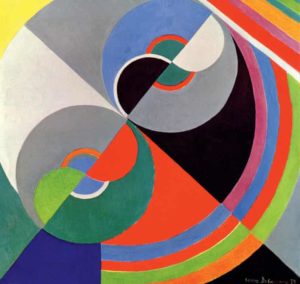
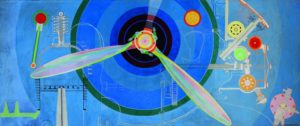
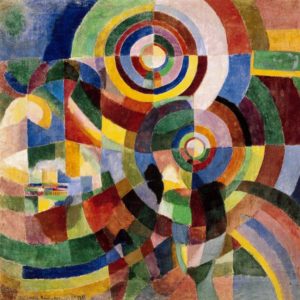
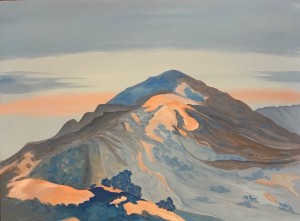
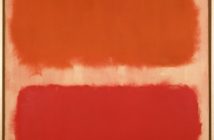
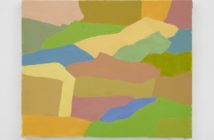
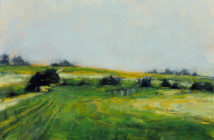
19 Comments
Yes… thank you for pointing out that it is the practice of anything that gets you ‘in the river’ You can’t buy experience!
damn, sara. YES.
Thank you for this wonderful article, Sara! Now I am encouraged to re-read Czik’s book FLOW.
Sara, often I can’t tell who is writing, your dad or you? And I like that.
I totally agree, Gordon. While reading the posts, and coming to the end, I take a wild guess at whether it’s you or your dad who wrote it!
Hello Sara!!!
This article brings me back in time. I had the most wonderful opportunity of interviewing your dad for my Master’s in Art Education (2012). Flow was a big part of our discussion and my subject of study. I loved our banter back and forth. I so appreciated how he took the time to discuss one’s thinking on the subject of Flow. Thank you for sharing and beautifully encapsulating Flow.
My mind gets all “hummy”…my own word…I hear a happy hum as I am engaged in the immersive activity. It is wonderful! Maybe that is why I prefer to be alone much of the time? Solitude and “hummy-ness” are intrinsic and addictive rewards…
Karen, I absolutely love your description! The first time that I played golf with the man who was to become my husband, he could not believe when he heard someone humming. As it turned out, it was me happily humming while on the putting green doing my thing!
This awakened a memory of my piano recital when I was about age ten. It was my second recital, I suddenly became aware that my brain no longer knew where I was in the piece. I became horrified and panic stricken, and didn’t know how my fingers were still playing. I managed to get control as I realized I was playing the end of it. I hurriedly rushed off the stage, and vowed to quit piano lessons, and concocted a story, (which I forget), and my Mother allowed me to stop taking lessons, Whew! What a relief. All these years later, thanks to your letter, I now know what actually transpired. It’s hard to believe that now that I’m eighty i can put this horror to rest. Thank you very much! (P. S. The piece was In “An English Country Garden”).
Sara,
Here is a letter to you from a friend, who is unable to visit your website, as he explains.
I have a special interest in this: I was the one who told Zvi about your website. Zvi Shulman and I are very long time friends. We were high school classmates graduating in 1962. He lives in Jerusalem and I in Massachusetts. He has been a very good friend to me for a very long time and I would like to facilitate his continued reading of the Painters Key website. He also happens to be an authentic
Autotelic Personality. Thank You. Elizabeth Mela
Please read Zvi’s message to you below.
Sara,
I have been receiving, enjoying, and learning from your twice-weekly letters for a few years. That recently ended, when my server posted the notice below, indicating your site is blocked due to an “untrustworthy certificate.” My anti-virus program is ESET, and I live in Jerusalem.
I (and presumably other persons who are blocked for a similar reason) would appreciate it if you could deal with the matter.
Best wishes,
Zvi Shulman
Let’s Encrypt is a very mainstream certificate provider, so it appears the problem is at the recipients end. Either ESET, or perhaps his internet provider has chosen not to allow it. I suspect it is the internet provider. If it is ESET, most antivirals software allows adding an exception.
this can happen because you are using a too old operating system. Read the options available in the warning message and you can bypass the block because you know the site and trust it.
Again, a wonderful letter that resonates the flow of thoughts saying… yes yes YESSSSS!!! Thank you, Sara!
I read a few weeks ago of Mr. Csíkszentmihályi’s passing, and your letter today reminds me of the good fortune I had to read Flow when it was first released. Even more fortuitous was the timing for me – my last year of art school and an impressionable 22. I pretty much thought it was a guide to life and creating, and still follow the ideas and think of it often. You’ve given an incredible summary here, and given some great homework! Thanks Sara.
Yes flow,is a bonus and reward in creating art or performing music.
It does allow for independent thought .Over and over again it gives our lives a means of expression.
I do not think flow waits for technical mastery.Even as children the joy of personal creation
and expression is conscious of flow.
I love flow.
One of your very best pieces. I still remember the contact high I got from reading “Flow.” Your development of the ideas brings up so many interesting threads and intersections: between the extreme needessness of mystics who find all they need in god, the delusional states of those who are living in an altered reality and are fully out of their minds, and the seemingly out of the flow state of those fully on the spectrum who immerse in work but cannot seem to immerse in people.
I feel, particularly with the technology surrounding us and the isolation of the pandemic that the idea of being “self-sufficient“ has taken on many new characteristics. How much harder it is to be in flow when you feel that the world is not stable or steady and when the existing economic system is built on the goal of distracting you for profit. I have excerpted many of the lines from your piece into my journal this morning to think about them more. Perhaps the greatest skill an artist can have is being able to cope with the long long stretches of anxiety before they know what they’re doing. The art of learning was most vividly taught to me through Tango. “First you must learn to walk to the cross.” If you attempt complex steps before mastering the little ones you can literally fall,— and take your partner down with you.
Thank you for this great letter! Wonderful! It’s exactly what I have personally experienced doing art – drawing, painting, and poetry! What Mihaly calls FLOW, I coined in my work as ‘IN THE GROOVE’, which is a well-known term in Jazz, or in any creative activity. It’s probably comparable to the state of ecstasy. I have once desired a mature woman in an artist’s workshop in Athens, but she was not interested in my flirt. The workshop leader, an artist from Beograd, said to me: “Carry on with your flow, when you’ll finish your painting you will feel the same satisfaction you desire from her.” Well, I felt great satisfaction when I finished the painting, but there was still a hanger included to carry on with the next one, perhaps making it even better. Since then I’m still creative and pray it never will stop.
So , that explains it. I thought I was the only one. Like an athlete with the endorphins flowing. “The Flow”!